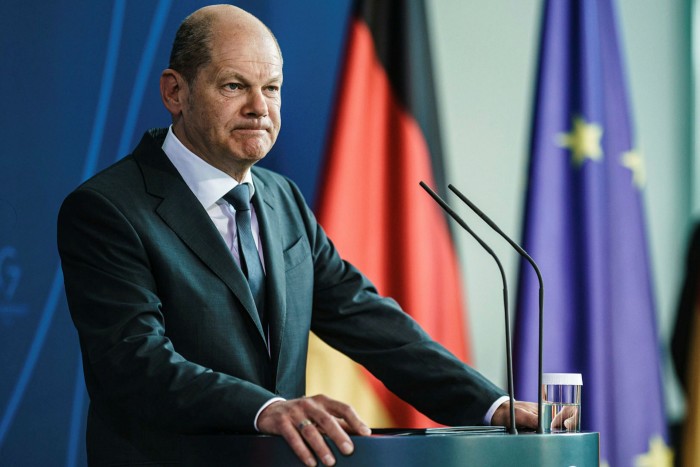An immediate EU ban on Russian gas imports would dent Germany’s gross domestic product by 5 per cent this year, the country’s powerful central bank has warned.
The Bundesbank said in its latest monthly bulletin, published on Friday, that an embargo would trigger a surge in energy prices and one of the deepest recessions of recent decades.
The central bank’s estimate of lost output amounts to €165bn in 2022. It is far gloomier than those of academic economists and is likely to revive a fierce debate over how equipped the eurozone’s economic powerhouse is to manage without Russian gas.
Ukraine’s government, European policymakers and academics have argued that sales of gas, oil and coal to the west have stabilised the Russian economy and helped finance President Vladimir Putin’s war machine. The EU will ban Russian coal imports from August, but gas deliveries are set to continue.
Last month, a group of nine university economists termed the fallout of a full energy embargo “manageable”, saying it would dent Germany’s GDP by just 0.3 to 3 per cent.
However, industry executives have warned the impact would be more severe. BASF chief executive Martin Brudermüller said a sudden stop of Russian gas deliveries could destroy Germany’s “entire economy” and could trigger the worst economic crisis since 1945.
Politicians have also rejected the claims the economic hit would be minor, with German chancellor Olaf Scholz labelling the estimates “wrong” and “irresponsible”. Economics minister Robert Habeck said Germany will wean itself off Russian gas by 2024.
At the IMF and World Bank meetings in Washington on Thursday, US Treasury secretary Janet Yellen called for the EU to be “careful” about banning Russian energy imports, warning of the harm such a move could inflict on the global economy.

Before the war in Ukraine, Russia accounted for 55 per cent of all German gas imports, according to figures from the German government. More than a third of that gas is consumed by the manufacturing sector. In the chemical industry, gas is needed not just to generate electricity and heat, but also to make chemicals derived from hydrocarbons.
Under German law, industrial users would be cut off from gas deliveries first should supply fall short of demand, with households who use it for heating and warm water generation getting preferential treatment. The German government last month took the first formal steps towards the rationing of gas.
In its simulation, the Bundesbank assumed that industrial consumers could not replace Russian gas with alternative energy sources for three quarters in a row. In such a scenario, inflation — which, at 7.3 per cent, is already at a post-reunification high — would shoot up by another 1.5 percentage points this year, exacerbating the threat of stagflation, where strong price pressures are coupled with weak growth.
The 5 per cent hit to growth would push the German economy into one of the biggest post-financial crisis recessions, as overall GDP would shrink by 2 per cent. The European Central Bank’s latest forecasts, made in March, estimated growth of 3 per cent. Germany’s economy shrank by 5.7 per cent in 2009, and by 4.6 per cent in 2020.
The Bundesbank cautioned that its estimates were subject to a very high degree of uncertainty, because it was unclear if standard macro models were able to catch all the knock-on effects that might be triggered by such an unprecedented disruption in energy supplies.
This article has been amended to reflect that the Bundesbank estimates that a 5 per cent hit to growth amounts to a €165bn drop in output, and not €180bn, as originally stated.


